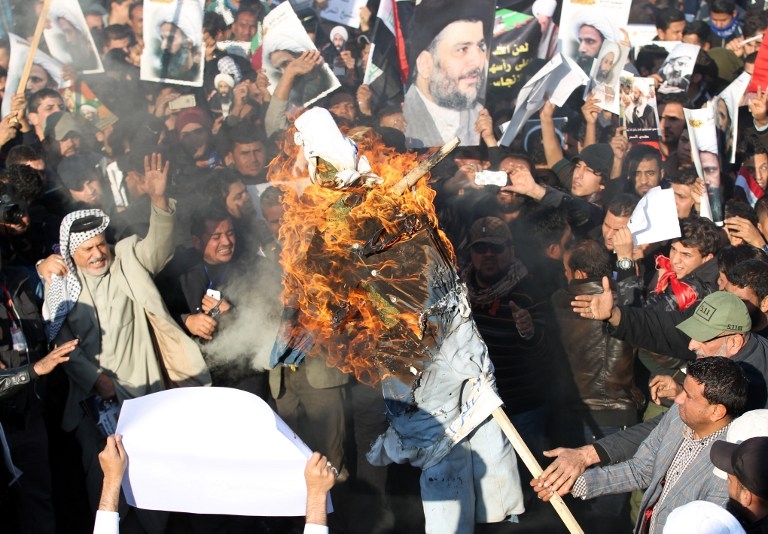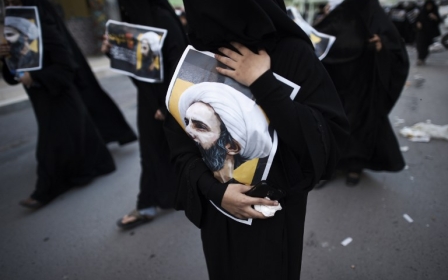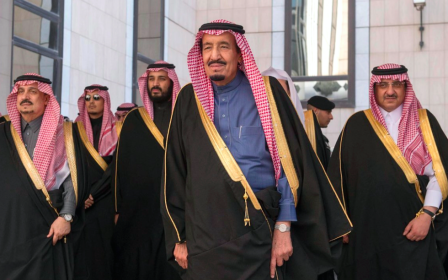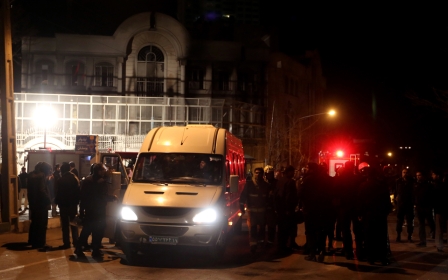UN envoy heads to Gulf capitals as diplomatic fallout escalates

UN, US and Turkish officials have urged calm as tensions between Saudi Arabia and Iran escalated after the weekend execution of a top Shia cleric erupted into a full-blown diplomatic crisis, threatening to derail efforts to bring an end to wars in Syria and Yemen.
Following a mob attack on the Saudi embassy in Tehran after the killing on Saturday of Sheikh Nimr al-Nimr and 46 others, Riyadh severed relations with Iran on Sunday, followed on Monday by Bahrain and Sudan. The United Arab Emirates has downgraded relations, replacing its ambassador with a charge d'affaires.
An angry crowd was able to break into the Saudi embassy in the Iranian capital on Sunday but an attack on the Saudi consulate general in Mashhad was prevented by security forces. Iran's President Hassan Rouhani condemned the embassy attack and more than 40 people have been arrested.
On Tuesday, Kuwait became the latest Gulf Arab state to recall its ambassador from Iran.
The attacks represented "a flagrant breach of international agreements and norms and a grave violation of Iran's international commitments for the security of diplomatic missions and the safety of diplomats", Kuwait's official KUNA news agency cited the foreign ministry as saying.
The Saudi civil aviation authority said on Monday that flights to and from Iran were also being suspended.
In addition to diplomatic reverberations felt across the region, oil prices fell, and Gulf stocks tumbled, with six of the region's seven exchanges down.
European countries and regional power Turkey voiced concerns over the row, while US Secretary of State John Kerry called his Iranian and Saudi counterparts on Monday and Moscow offered to act as an intermediary.
The UN envoy for Syria was headed to Riyadh and Tehran to defuse tensions, and US State Department spokesman Josh Earnest said Washington was "concerned for both the Saudis and the Iranians".
"We are urging all sides to show some restraint and not further inflame some tensions that are on display in the region," Earnest said.
Fears of blowback
The crisis has raised fears of an increase in sectarian violence in the Middle East, including in Iraq where two Sunni mosques were blown up late on Monday and two people killed.
Noah Bonsey, a senior analyst at the International Crisis Group, said the deterioration in relations would "further diminish already low expectations" for talks on Syria expected later this month.
"Ultimately, reaching a political resolution in Syria would require key states backing each side to make reciprocal concessions, and pressure their Syrian allies to do the same," he said. "For now, things are moving in the opposite direction."
The UN Security Council on Monday strongly condemned the attack on the Saudi embassy. A statement by the 15-member council, which called on Iran to protect diplomatic personnel and property, made no mention of Riyadh's execution of Sheikh Nimr al-Nimr.
Saudi Arabia insisted at the UN late on Monday, however, that the row would not affect efforts to resolve conflicts in Syria and Yemen.
"From our side, it should have no effect because we will continue to work very hard to support the peace efforts in Syria and Yemen," said Saudi Arabia's ambassador to the UN, Abdallah al-Mouallimi.
He said Riyadh would attend upcoming talks on Syria, but took a swipe at Iran's role in the nearly five-year war there, saying: "They have been taking provocative and negative positions... and I don't think the break in relations is going to dissuade them from such behaviour."
New MEE newsletter: Jerusalem Dispatch
Sign up to get the latest insights and analysis on Israel-Palestine, alongside Turkey Unpacked and other MEE newsletters
Middle East Eye delivers independent and unrivalled coverage and analysis of the Middle East, North Africa and beyond. To learn more about republishing this content and the associated fees, please fill out this form. More about MEE can be found here.




